Wood Vinegar
Wood vinegar, also known as Pyroligneous Acid, is a by-product of wood carbonisation that has many applications in agriculture and industry. The production of wood vinegar through pyrolysis is a sustainable and eco-friendly method as it utilizes a waste product (wood waste) to create a valuable resource.
Wood vinegar has numerous uses and benefits, making it a versatile and valuable product. It can be used as a natural pesticide, fertilizer, and soil conditioner for organic farming. It can also be used in animal feed supplements, as a health supplement for humans and animals, and as a natural cleaning agent.
Uses of Wood Vinegar throughout history:
- Medicinal uses: Wood vinegar has been used in traditional medicine to treat various ailments, including skin infections, wounds, and respiratory problems. It is often used in the form of a salve or ointment.
- Wood preservation: Wood vinegar is a natural preservative that can protect the wood from rot, insects, and other forms of decay. It is often used to produce wooden shingles, boats, and other wooden products.
- Agriculture: Wood vinegar is a natural insecticide and can be used to repel pests from crops. It can also be used as a soil conditioner, as it helps to improve soil structure and fertility.
- Industrial uses: Wood vinegar is used as a raw material in the production of a variety of chemicals, including acetic acid, methanol, and formaldehyde. It is also used in producing charcoal briquettes and as a fuel source.
- Cosmetics: Wood vinegar is used in the production of cosmetics, such as shampoos and soaps, due to its antifungal and antiseptic properties. It is also used in the treatment of dandruff and other scalp conditions.

More Information
The process of pyrolysis for producing wood vinegar can be done on both a small and large scale, making it accessible for farmers and businesses of all sizes. This allows for the production of wood vinegar to be integrated into various industries, including agriculture, horticulture, and cosmetics. Wood vinegar has been found to have antimicrobial, antifungal, and insect-repellent properties, making it a popular alternative to chemical-based products. It can also improve soil quality and health, promoting better plant growth and crop yield. Its natural and organic properties make it an attractive option for consumers looking for sustainable and eco-friendly solutions.
Process
- Raw Material Selection: The process begins by selecting suitable raw materials, such as wood chips, sawdust, or other biomass. Different types of wood can be used, including hardwoods like oak, maple, or fruit tree wood.
- Carbonisation The selected raw materials are subjected to a process called carbonisation. In this step, the organic materials are heated in a low-oxygen environment, such as a kiln or retort. The temperature gradually increases, typically from 400 to 600 degrees Celsius.
- Collection of Wood Vinegar: As the organic materials are heated, volatile compounds are released as gases and vapours. These vapours are collected and condensed to obtain the wood vinegar. The condensation process involves cooling the vapours, causing them to liquefy into a dark, acidic liquid.
- Filtration and Storage After condensation, the wood vinegar is filtered to remove any impurities or solid particles. It is then stored in airtight containers to preserve its quality.
Wood vinegar production can vary depending on the specific equipment and techniques used. The quality and composition of the wood vinegar can also be influenced by factors such as the type of wood used, the carbonisation temperature, and the duration of the process. It is important to note that the application rates and methods of using wood vinegar may vary depending on the specific crop, soil conditions, and agricultural practices. It is always recommended to follow the manufacturer’s instructions and conduct proper testing before widespread use.
Agricultiral Use
Natural Pesticide:
Wood Vinegar contains acetic acid and other organic compounds with insecticidal and repellent properties. It can be a natural alternative to synthetic pesticides to control pests such as aphids, mites, and caterpillars. Wood vinegar exhibits several insecticidal properties that make it effective in controlling pests. Here are some of the critical insecticidal properties:
- Repellent Action: Has a strong odour that repels many insect pests. The acetic acid and other volatile compounds in wood vinegar act as natural deterrents, making it difficult for pests to locate and infest plants. This repellent action can help protect crops from damage caused by insects.
- Disruption of Insect Behaviour: This can disrupt the behaviour of insects, making it difficult for them to feed, breed, or communicate. The acetic acid in wood vinegar can interfere with the pheromone signals that insects use to locate mates or food sources, reducing their ability to reproduce and infest plants.
- Toxicity to Insects: Contains organic acids, phenols, and other toxic compounds to many insect pests. When insects come into contact with wood vinegar or ingest it, these compounds can disrupt their cellular functions, leading to paralysis, suffocation, or death.
- Anti-Feeding Activity: This can inhibit the feeding activity of insects. When insects come into contact with wood vinegar-treated plants, they may experience decreased appetite or feeding inhibition. This can help reduce the damage caused by pests, as they consume less plant tissue.
- Larvicidal Activity: Has been found to have larvicidal properties, which can kill insect larvae. When wood vinegar is applied to the breeding sites or areas where larvae are present, it can disrupt their growth and development, preventing them from reaching adulthood and causing further damage.
It’s important to note that the effectiveness of wood vinegar as an insecticide can vary depending on the specific pests and crops being targeted. Additionally, proper application methods and timing are crucial for achieving optimal results. Following the manufacturer’s instructions, consulting with local agricultural experts for specific pest management recommendations, and Consulting agriculture laws are always recommended.
Soil Conditioner:
Wood vinegar can improve soil quality by balancing pH levels and enhancing nutrient availability. It helps to break down organic matter, promoting decomposition and nutrient cycling. Applying wood vinegar to the soil can also enhance soil structure, water retention, and microbial activity. Wood vinegar, also known as pyroligneous acid, has several uses as a soil conditioner. Here are some of its benefits:
- Nutrient Enhancement: Contains various organic acids, such as acetic acid, that can help improve the nutrient content of the soil. It enhances the availability of essential nutrients like nitrogen, phosphorus, and potassium, promoting healthy plant growth.
- pH Adjustment: It has a slightly acidic nature, which makes it helpful in adjusting the pH of the soil. It can help neutralize alkaline soils, making them more suitable for growing a more comprehensive range of plants.
- Soil Microbial Activity: Contains beneficial microorganisms that can improve soil microbial activity. These microorganisms contribute to the breakdown of organic matter, making nutrients more accessible to plants and enhancing soil fertility.
- Pest and Disease Control: Has natural insecticidal and fungicidal properties. It can help control pests and diseases that may harm plants when applied to the soil. It acts as a deterrent for certain insects and can suppress the growth of harmful fungi.
- Weed Suppression: It can also be a natural weed suppressant. When applied to the soil, it inhibits weed seed germination and growth, reducing the competition for nutrients and water between weeds and desired plants.
To use wood vinegar as a soil conditioner, it is typically diluted with water and applied to the soil either through spraying or irrigation. It is essential to follow the recommended application rates and guidelines provided by the manufacturer. Note: Consult your agriculture laws.
Plant Growth Promoter:
Wood vinegar contains plant growth stimulants, such as auxins and cytokinins, which can promote root development, enhance seed germination, and stimulate overall plant growth. It can be used as a foliar spray or added to irrigation water to improve plant health and productivity.
Wood vinegar, also known as pyroligneous acid, can benefit plant growth as a soil amendment. Here are some ways in which wood vinegar can contribute to plant growth:
- Nutrient Enhancement: Contains organic acids and essential minerals that can improve the nutrient content of the soil. When applied to the soil, it can enhance the availability of nutrients like nitrogen, phosphorus, and potassium, essential for plant growth and development.
- Soil pH Adjustment: It has a slightly acidic nature, and it can help adjust the pH of the soil. Some plants have specific pH preferences, and wood vinegar can be used to make the soil more acidic if needed. This adjustment can promote better nutrient uptake by the plants and optimize their growth.
- Soil Microbial Activity Contains beneficial microorganisms that can enhance soil microbial activity. These microorganisms play a crucial role in breaking down organic matter and releasing nutrients in a form that plants can absorb. Improved microbial activity can improve nutrient cycling and soil health, leading to healthier plant growth.
- Pest and Disease Control: Has natural insecticidal and fungicidal properties. It can help control pests and diseases that may harm plants when applied to the soil. It acts as a deterrent for certain insects and can suppress the growth of harmful fungi, helping to protect the plants and promote their growth.
- Root Development: This can stimulate root development in plants. It contains growth-promoting substances that encourage root growth and branching, leading to a more robust root system. A well-developed root system can support better nutrient and water absorption, resulting in healthier and more vigorous plant growth.
When using wood vinegar as a soil amendment, it is crucial to follow the recommended application rates and guidelines provided by the manufacturer. Diluting the wood vinegar with water and applying it to the soil is a standard application method. It is also advisable to conduct a soil test before application to ensure that the soil pH and nutrient levels are within the desired range for the growing plants.
Note: Consult your agriculture laws.
Weed Control:
Wood vinegar has herbicidal properties and can be used as a natural weed suppressant. Applying wood vinegar to weed-infested areas can help control the growth of unwanted plants without harming surrounding crops or the environment. Pyroligneous acid can be used as a natural and environmentally friendly alternative for weed control.
Here are some ways in which wood vinegar can help in weed management:
- Herbicidal Properties: Contains acetic acid, which has herbicidal properties. When applied to weeds, it can cause the plant tissues to dry out and eventually die. This can effectively control a wide range of weeds, including broadleaf weeds and some grasses.
- Non-Selective Weed Control: It has non-selective weed control properties, meaning it can target and control various weed species, but not all. However, it is essential to note that wood vinegar can also harm desirable plants, so it should be used cautiously and applied directly to the weeds to minimize contact with other plants.
- Organic and Environmentally Friendly: It is derived from natural sources, making it an organic and environmentally friendly option for weed control. It does not leave behind harmful residues in the soil or water, reducing the risk of environmental contamination.
- Safe for Home Gardens: When applied correctly, it is generally safe to use in home gardens. However, it is crucial to follow the manufacturer's instructions for application rates and avoid spraying it on desirable plants. It is also advisable to wear protective clothing and gloves when handling wood vinegar to prevent skin and eye irritation.
- Precautions and Limitations: While it Can be effective in controlling weeds, it may not completely eliminate well-established perennial weeds with deep root systems. It is most effective on young and actively growing weeds. Multiple applications may be necessary for adequate control.
When using wood vinegar for weed control, it is best to apply it on a sunny day when the weeds are actively growing. Spray the wood vinegar directly on the leaves and stems of the weeds, ensuring thorough coverage. Avoid spraying on windy days to prevent the solution from drifting onto desirable plants. It is important to note that wood vinegar is not a long-term solution for weed control. It can help suppress and manage weed growth. Still, it is essential to address the underlying causes of weed infestation, such as improving soil health, practising proper plant spacing, and using mulch to prevent weed seeds from germinating. As with any weed control method, it is advisable to identify the weed species and research its susceptibility to wood vinegar before application. Additionally, check local regulations and restrictions regarding using wood vinegar for weed control in your area.
Disease Suppression:
Wood vinegar has antimicrobial properties that can help suppress various plant diseases caused by fungi, bacteria, and viruses. It can be used as a preventive measure or a treatment for certain plant diseases, reducing the need for chemical fungicides.
When used in plant care, there are some ways in which wood vinegar can help in disease suppression:
- Antimicrobial Properties: Contains natural antimicrobial compounds that can help suppress the growth and activity of certain disease-causing microorganisms, such as bacteria and fungi. Wood vinegar can help prevent the onset and spread of various plant diseases by inhibiting the growth of these pathogens.
- Fungal Disease Control: This is effective against fungal diseases commonly affecting plants, including powdery mildew, black spots, and fungal leaf spots. When applied as a foliar spray or soil drench, it can help suppress fungal growth and reduce the severity of these diseases.
- Bacterial Disease Control: This can also have a positive impact on bacterial diseases that affect plants. It can inhibit the growth of bacteria and reduce the spread of diseases like bacterial blight, bacterial spot, and bacterial wilt. Regular application of wood vinegar can help prevent bacterial infections and promote healthier plant growth.
- Enhanced Plant Immunity: This has been shown to stimulate the natural defence mechanisms of plants, making them more resistant to diseases. It can activate plant enzymes and compounds that play a role in defence responses, such as the production of antimicrobial substances and the strengthening of cell walls.
- Improved Soil Health: This can contribute to overall soil health, which indirectly helps in disease suppression. It enhances soil microbial activity, creating a balanced and diverse soil microbiome. A healthy soil microbiome can help suppress the growth of disease-causing organisms and promote the growth of beneficial microorganisms that compete with pathogens.
When using wood vinegar for disease suppression, it is essential to follow the recommended application rates and methods provided by the manufacturer. Diluting the wood vinegar with water and applying it as a foliar spray or soil drench is a standard application method. Conducting a small patch test on a few plants before widespread application is also advisable to ensure compatibility and prevent any adverse effects. While wood vinegar can be effective in disease suppression, it is essential to note that it may not completely control all plant diseases. Integrated pest management practices, including proper sanitation, good watering practices, and regular monitoring, should be implemented in conjunction with using wood vinegar to manage plant diseases effectively. Additionally, it is crucial to identify the specific disease affecting your plants and research the compatibility of wood vinegar with that particular disease. Different diseases may have different susceptibilities to wood vinegar, so it is crucial to tailor your disease management approach accordingly to your agriculture laws.
Animal Feed Additive:
This can be added to animal feed as a natural growth promoter and digestive aid. It has been shown to improve the digestion and absorption of nutrients in livestock, leading to better overall health and performance.
- Improved Digestion: Contains organic acids that can help improve digestion in animals. These organic acids can enhance the breakdown and absorption of nutrients, leading to improved feed efficiency and nutrient utilization.
- Enhanced Gut Health: The organic acids in wood vinegar can have a positive impact on gut health in animals. They can help maintain a favourable pH balance in the digestive system, creating an environment conducive to the growth of beneficial bacteria and inhibiting the growth of harmful bacteria. This can support a healthy gut microbiota and reduce the risk of digestive disorders.
- Reduced Ammonia Levels: Wood vinegar has been shown to have ammonia-suppressing properties. High ammonia levels in animal facilities can harm animal health and performance. By adding wood vinegar to animal feed, it can help reduce ammonia production in the digestive system, leading to improved air quality and reducing the risk of respiratory issues.
- Antimicrobial Properties: Wood vinegar contains natural antimicrobial compounds that can help control the growth of specific pathogens in the animal's digestive system. This can contribute to the overall health and well-being of the animals.
- Odour Control: Adding wood vinegar to animal feed can help reduce the unpleasant odours often associated with livestock production. The antimicrobial properties of wood vinegar can help control the growth of odour-causing bacteria in the digestive system, reducing odour emissions.
The organic acids present in wood vinegar can play a beneficial role in improving digestion in animals through several mechanisms:
- pH Regulation: Organic acids help regulate the pH balance in the digestive system of animals. They can lower the pH levels in the stomach and intestines, creating an acidic environment that promotes the activity of digestive enzymes. This enhanced enzymatic activity helps break down complex nutrients, making them more easily digestible and absorbable by the animal.
- Nutrient Breakdown: The organic acids in wood vinegar can aid in the breakdown of complex carbohydrates, proteins, and fats in animal feed. They can increase the solubility of these nutrients, making them more available for enzymatic digestion. This improves the efficiency of nutrient utilization by the animal, leading to better digestion and absorption of essential nutrients.
- Beneficial Microbial Growth: Organic acids can selectively stimulate the growth of beneficial bacteria in the animal's digestive system. These beneficial bacteria help in the fermentation and breakdown of feed components that are otherwise indigestible by the animal. The by-products of this fermentation process, such as short-chain fatty acids, provide additional energy sources for the animal and promote a healthy gut microbiota.
- Pathogen Control: Wood vinegar contains natural antimicrobial compounds that can help control the growth of specific pathogens in the animal's digestive system. This can contribute to the overall health and well-being of the animals.
Overall, the organic acids in wood vinegar contribute to improved animal digestion by regulating pH levels, enhancing nutrient breakdown, promoting beneficial microbial growth, and controlling the growth of harmful pathogens. These effects result in better nutrient utilization, reduced digestive issues, and improved overall animal health and performance.
When using wood vinegar as an animal feed additive, it is crucial to follow the recommended dosage guidelines provided by the manufacturer. It is also advisable to conduct trials and monitor animal health and performance to assess the effectiveness and suitability of wood vinegar for your specific animal production system.
Products
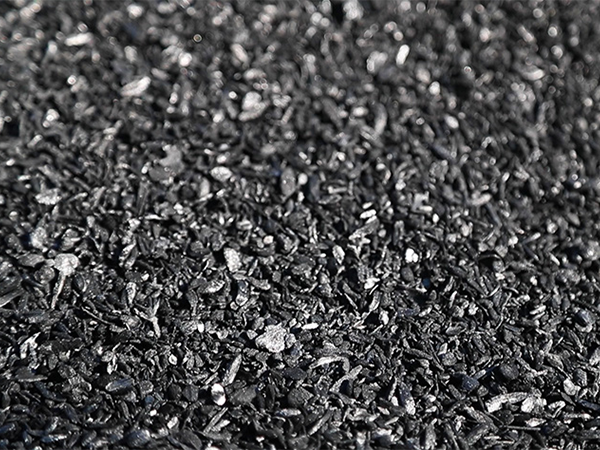
Biochar is a type of charcoal produced from biomass and used as a soil amendment in agriculture. Wood-based biochar is a common type of biochar.
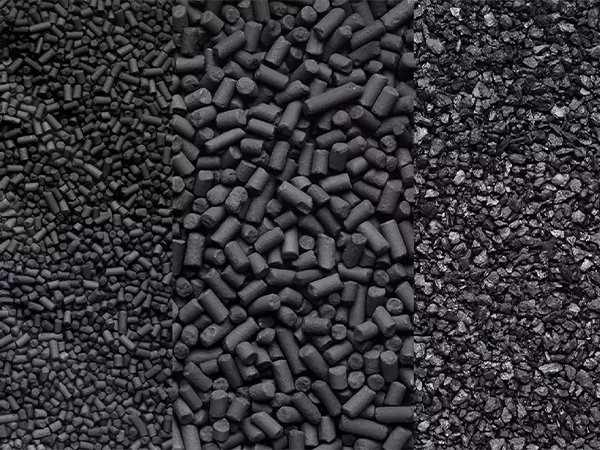
Activated carbon is a highly porous form of carbon with many applications, including water purification, air purification, and chemical processing.

Carbon Black is a form that is produced by burning hydrocarbons, such as natural gas or petroleum, however, it can also be made from wood waste via pyrolysis.
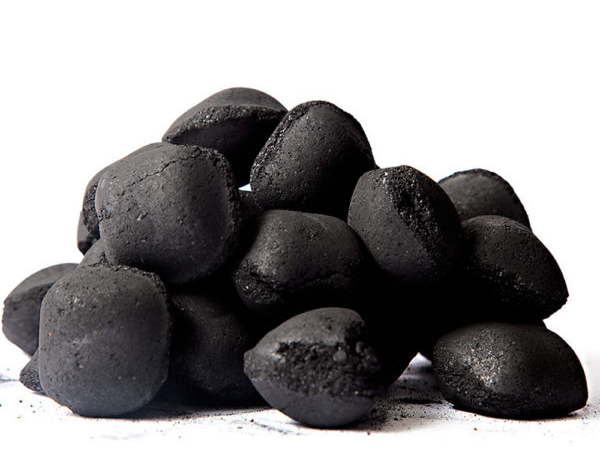
Charcoal briquettes are a type of fuel made from charcoal and used for cooking and heating. Wood waste can be used as a raw material for producing charcoal briquettes.
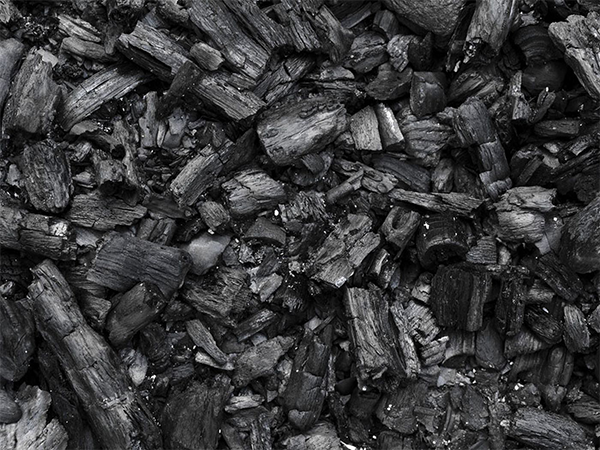
BBQ charcoal is a popular fuel source used for grilling and cooking food outdoors. It is made from wood that has been burned in the absence of oxygen, creating a lightweight and highly porous material.
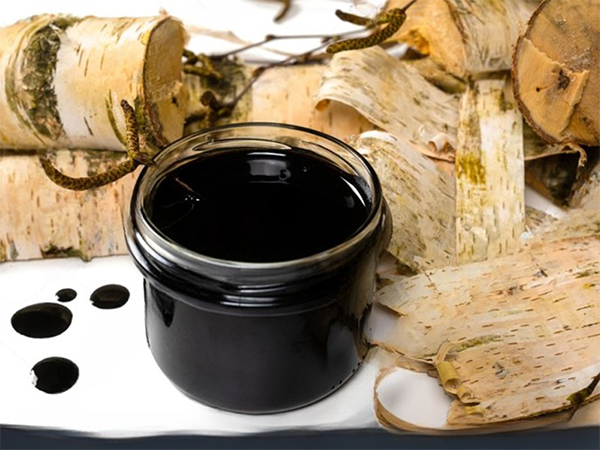
Wood tar is a dark, sticky substance that is derived from the heating and distillation of wood. It is commonly used as a traditional preservative for wood and as a natural adhesive in construction.

Wood vinegar, also known as pyroligneous acid, is a by-product of wood carbonisation that has many applications in agriculture and industry.
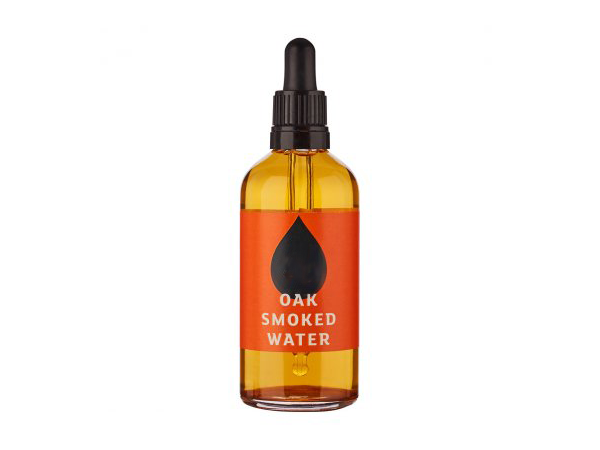
Smoking water is used in cooking to add a smoky taste to dishes. It is produced by cold smoking, which involves exposing water to smoke for an extended period of time.
Find Out More
If you would like more information, provide your details below and we’ll get back to you ASAP!